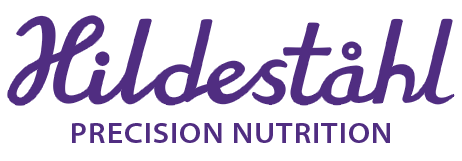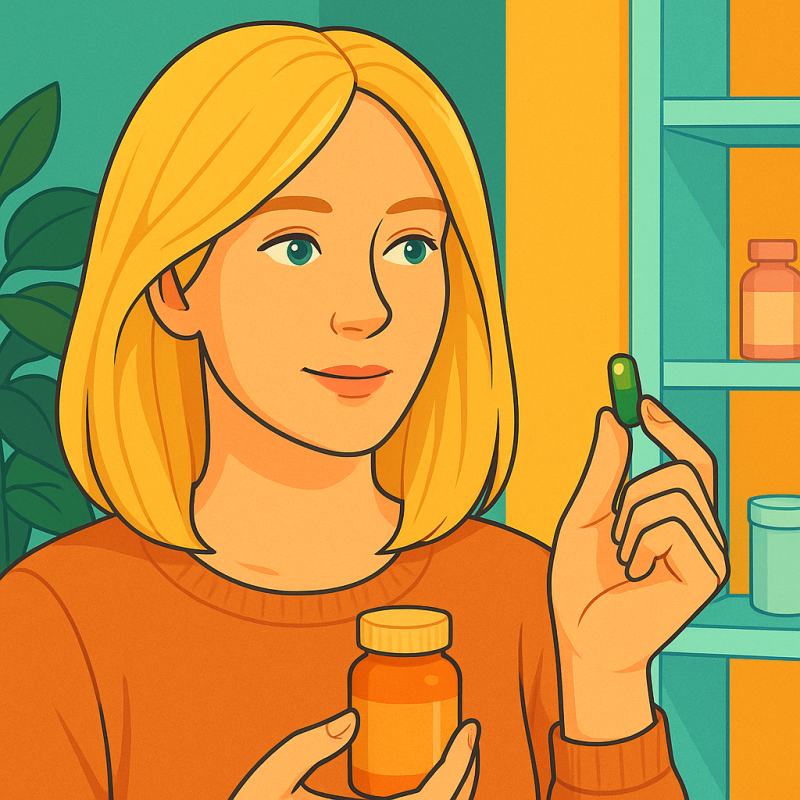No products in the cart.
Vitamins for menopausal hair, how to support your hair
Menopause is a natural part of life, but it can also feel like a period full of changes, not only in your body and mood, but also in your hair. Suddenly, many people notice that their hair feels thinner, loses its shine or no longer grows as it used to. This can be both surprising and a bit distressing, especially when your hair has been an important part of your self-image for many years. But fear not, with the right vitamins, minerals and nutrition, your hair can get the support it needs to feel better and maintain its strength during menopause.
Why is hair affected by menopause?
During menopause, the body undergoes major hormonal changes and hair is often one of the first places to notice these changes. Oestrogen and progesterone, hormones that previously helped keep hairs growing longer, gradually decline. As these hormone levels decrease, more hairs can enter the resting phase faster than before. As a result, hair can feel thinner, less full and hair loss can increase, which can be both unexpected and worrying for many women. It is important to remember that this is a completely natural part of menopause and not a sign that something is wrong with the body.
At the same time, hair follicles may become more sensitive to other hormonal changes, such as increased levels of androgens. Androgens are hormones that are naturally present in both men and women, but during menopause, some women may find that their hair follicles react more strongly to these hormones. This can lead to hair thinning in specific areas, often at the top of the head, which can cause the hair to feel as if it is losing its previous fullness and shine.
For many, these changes can be frustrating, especially as hair is often an important part of self-image and how you feel in everyday life. However, there are many things you can do to support your hair during this period. By providing the body with the right nutrition, adequate rest and care, hair follicles can be given the best conditions to continue producing healthy, strong hairs. Understanding what is happening to your body and hair can make it easier to accept the changes, while actively strengthening your hair with small, simple measures such as diet, vitamins and gentle hair care.
Vitamins and minerals that can support hair
Although hormonal changes during menopause play a major role in hair loss and thinning, proper nutrition can provide valuable support to hair follicles and help improve both hair quality and strength. By providing the body with the building blocks it needs, hair strands can grow stronger, hair can retain its shine and the scalp can stay healthy. Here are some of the key vitamins and minerals that can help hair during this phase of life:
biotin
Biotin is perhaps the most well-known nutrient when it comes to hair health. It is essential for the body to convert food into energy and plays an important role in the production of keratin, the protein that makes up the majority of hair. Biotin helps hair to become stronger and less prone to breakage. It is found naturally in foods such as eggs, almonds, sweet potatoes and oats, but can also be taken as a supplement to ensure hair receives adequate support.
Vitamin D
Many menopausal women have low levels of vitamin D, which can affect not only bone health but also the functioning of hair follicles. Vitamin D is essential for hair follicles to produce new hairs normally, and deficiency can contribute to increased hair loss or thinning hair. Spending time in sunlight and eating vitamin D-rich foods such as oily fish or fortified dairy products can help, but for some, a supplement may be necessary.
Zinc
Zinc is a mineral that is essential for hair growth and cell division. It helps hair follicles to function properly and helps hair maintain its natural strength and shine. Zinc is found in meat, fish, nuts and legumes, and a balanced intake can be particularly important during menopause, when the body may have an increased need for certain minerals.
Iron
Iron is essential for hair health, as deficiency can worsen hair loss and thinning. Especially after menopause, iron levels may need to be monitored, as the body’s absorption changes with age. Ensuring an adequate iron intake, through both diet and supplementation if necessary, can help ensure that hair follicles have the energy they need to produce healthy hairs.
Vitamin C
Vitamin C is a powerful antioxidant that protects cells from damaging free radicals and oxidative stress, factors that can affect the health of hair follicles. In addition, vitamin C helps the body absorb iron efficiently, allowing hair follicles to get the support they need to grow strong and healthy hairs. Citrus fruits, berries and vegetables are natural sources of this important vitamin.
Omega-3 fatty acids
Omega-3 fatty acids support scalp health by helping to maintain moisture balance and reduce inflammation, which in turn can lead to stronger, shinier hair. Oily fish such as salmon and mackerel, as well as nuts and seeds, are good sources of omega-3. Including these in the diet can help improve the ability of hair follicles to produce viable hairs and contribute to a healthier scalp.
Hairforce supplements, support for menopausal hair
For many women, it can be difficult to get all the vitamins and minerals their hair needs every day, especially during the menopause when the body’s needs change. This is where a dietary supplement such as Hairforce from Hildeståhl can be a valuable support. Hairforce is specially formulated to give hair follicles the building blocks they need to continue producing strong, healthy hair.
Hairforce contains MSM, an organic sulphur often referred to as a beauty mineral, which is essential for the production of keratin and collagen, which give hair strength and flexibility, and also helps the body in detoxification processes. Silicon from bamboo stalks provides additional support to hair, skin and nails, while a vitamin B complex with extra biotin strengthens hair follicles and helps hair retain its shine.
In addition, Hairforce contains essential minerals such as zinc, selenium, magnesium, iodine and manganese, all of which are central to hair growth and strength. Vitamin C is included to increase the absorption of minerals and promote the formation of collagen, and the herbs rosemary and sage are traditionally used to stimulate blood circulation in the scalp, nourishing the hair follicles.
The beauty of Hairforce is that it is formulated without animal ingredients, copper or DHT blockers, making it a natural and gentle way to support hair from within. When combined with a balanced diet, gentle hair care, good sleep and stress management, hair follicles are given the best possible conditions to continue producing healthy, vibrant hairs. Hairforce then becomes not just a supplement, but part of a holistic strategy to feel good and strengthen hair during menopause.
Taking care of your hair during menopause – from the inside out
Hair changes during menopause are perfectly natural, but that doesn’t mean you can’t provide the best possible support. Hormonal changes can cause more hairs to go into the resting phase more quickly, but by taking care of the body as a whole, hair follicles can continue to produce strong and healthy hairs.
Proper nutrition is an important part of this. Vitamins such as biotin, vitamin D and vitamin C, along with minerals such as zinc, iron and selenium, provide the building blocks for hair follicles to thrive. Omega-3 fatty acids and antioxidants can also protect both hair and scalp, while gentle hair care and recovery through sleep and stress management further strengthen the conditions.
A food supplement like Hairforce can complement these efforts. With ingredients like MSM, silicon, B vitamins, zinc, and herbs like rosemary and sage, it supports the body from within, helping hair follicles continue to function optimally even under the influence of hormonal changes. Simply put, it’s a natural way to support your hair during menopause.
By combining nutrition, care and a healthy lifestyle, you can give your hair the best possible conditions to continue growing strong, shiny and healthy. It’s not just about looks, it’s about well-being, self-esteem and taking care of yourself in a way that feels good and sustainable over time.
Read more about Hairforce HERE.
Article authored by Kevin Skillström

